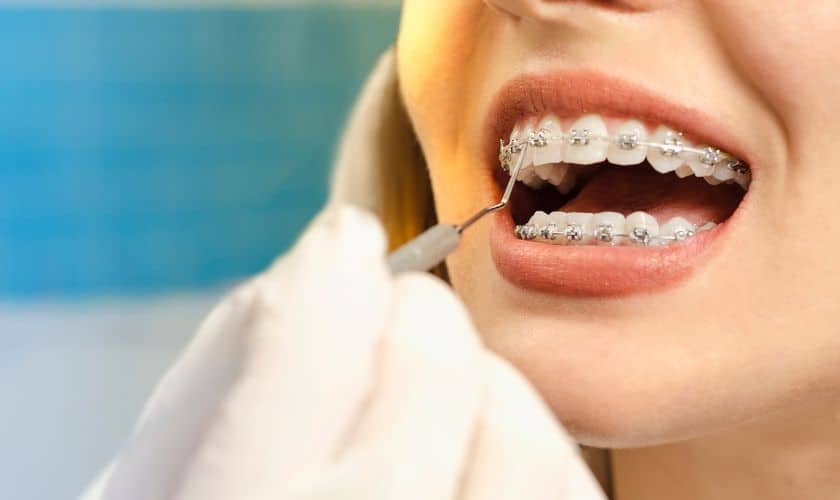Retainers are an essential part of orthodontic care. They ensure your newly aligned teeth stay in place after braces or aligners. However, like any dental device, retainers also come with some drawbacks you should understand before beginning long-term use. If you are planning to get Dental Retainers in Islamabad, it’s important to know what to expect during daily wear.

Why Do Retainers Have Downsides in the First Place?
Retainers need to hold teeth in place firmly, which is why they fit tightly. This pressure can create challenges such as soreness, inconvenience, or cleaning issues.
Retainers also come in different types—including removable, fixed, acrylic, and clear—each carrying its own limitations. Despite these downsides, retainers remain the most effective tool to prevent teeth from shifting after orthodontic treatment.
Do Retainers Cause Discomfort or Soreness?
Yes, especially in the first few days.
Discomfort usually happens because:
-
The retainer exerts slight pressure to keep the teeth stable
-
You may not be used to wearing an appliance
-
The material may irritate gums or cheeks initially
However, this irritation typically improves within a week as your mouth adjusts.
Can Retainers Affect Speech?
Yes. Removable retainers—especially Hawley retainers—can temporarily affect speech.
You may experience:
-
Difficulty pronouncing “S” or “T” sounds
-
Slight lisping
-
Increased saliva production
Fortunately, this side effect is short-term. Most people adapt to normal speech within 2–5 days.
Are Retainers Hard to Clean or Maintain?
Removable retainers require daily cleaning to prevent:
-
Bacterial buildup
-
Odor
-
Staining
-
Plaque accumulation
Neglecting cleaning can also lead to gum irritation.
Fixed retainers, meanwhile, make flossing more challenging since the wire is bonded to teeth. This means you’ll need extra tools like floss threaders or interdental brushes.
What Results Can You Expect From Using Retainers?
Despite the downsides of retainers, they are highly effective at maintaining orthodontic results. Proper use of either removable or fixed retainers ensures that your teeth stay aligned long-term.
Expected Results:
-
Prevent Teeth from Shifting Back
Retainers stabilize teeth after braces or aligners, maintaining your smile and bite. -
Long-Term Alignment Maintenance
Studies show that consistent retainer use prevents relapse for most patients, even years after treatment. -
Improved Bite Function
Teeth held in correct positions help in better chewing, speaking, and jaw function. -
Aesthetic Satisfaction
Maintaining straight teeth enhances overall facial aesthetics and smile confidence.
Comparison Table: Downsides of Removable vs. Fixed Retainers
| Factor | Removable Retainers | Fixed Retainers |
|---|---|---|
| Maintenance | Must clean daily | Harder to floss around |
| Speech Impact | Possible short-term lisp | No effect on speech |
| Comfort | May cause irritation initially | Usually comfortable |
| Risk of Damage | Easy to lose or break | Can bend or detach |
| Oral Hygiene | Easy to clean but can trap bacteria if neglected | Can cause plaque buildup around wire |
| Compliance Needed | High—must be worn as prescribed | Low—always in place |
Can Retainers Affect Oral Hygiene?
Yes, in some cases.
Removable Retainers
If not cleaned properly, bacteria can accumulate, leading to:
-
Bad breath
-
Plaque
-
Gum irritation
Fixed Retainers
The glued wire can make flossing tricky, which increases the risk of:
-
Calculus buildup
-
Gum inflammation
-
Decalcification spots
Good hygiene habits are essential regardless of the retainer type.
Are Retainers Easy to Lose or Break?
Removable retainers can be misplaced easily, especially if:
-
Wrapped in tissue
-
Left on a table
-
Placed in a pocket
-
Exposed to heat (which can deform plastic retainers)
Breakage may occur if they’re stepped on or chewed accidentally.
Fixed retainers rarely get lost, but the bonding material may weaken over time, causing the wire to detach.
Do Retainers Need Replacement or Adjustment?
Yes. Retainers are not lifetime devices.
You may need replacement if:
-
The retainer cracks
-
The wire bends
-
The fit loosens
-
It becomes stained
-
You lose it
Ignoring a damaged retainer can lead to relapse—where teeth shift back to their old positions.
Can Retainers Affect Daily Convenience?
Some people find retainers inconvenient because:
-
Removable retainers must be taken out while eating
-
You must store them in a protective case
-
They require consistent cleaning
-
They may dry out if left unused
Fixed retainers are more convenient but may feel restrictive if food gets stuck around the wire.
Reviews From Real Patients
“I didn’t expect cleaning my fixed retainer to be this time-consuming, but with floss threaders, it became easier. Still totally worth keeping my teeth straight.”
“My clear retainer felt tight and uncomfortable at first. But after a week, I barely noticed it. Just had to get used to the routine.”
“I lost my removable retainer twice, so I switched to a fixed one. Proper guidance from the clinic helped me maintain it well without hygiene issues.”
Conclusion
Retainers play a crucial role in maintaining your smile after orthodontic treatment, but they do come with downsides. Whether it’s temporary discomfort, speech changes, maintenance challenges, or the risk of losing them—knowing what to expect helps you prepare and manage these issues effectively. With the right type of retainer and proper care habits, most disadvantages can be minimized while preserving long-term results. Retainers may require effort, but the reward—a lifelong straight smile—is worth it.
Contact Us — Protect Your Smile With the Right Retainer!
Address : Office Number LG 20 – 21 Interlace Plaza I-8 Markaz Islamabad
Phone : +92 333 5705871
Email : info@glamorousclinic.com.pk